The 55th Session of the Human Rights Council
26 February - 5 April 2024
Item 10: High-level dialogue on the human rights situation in the Central African Republic
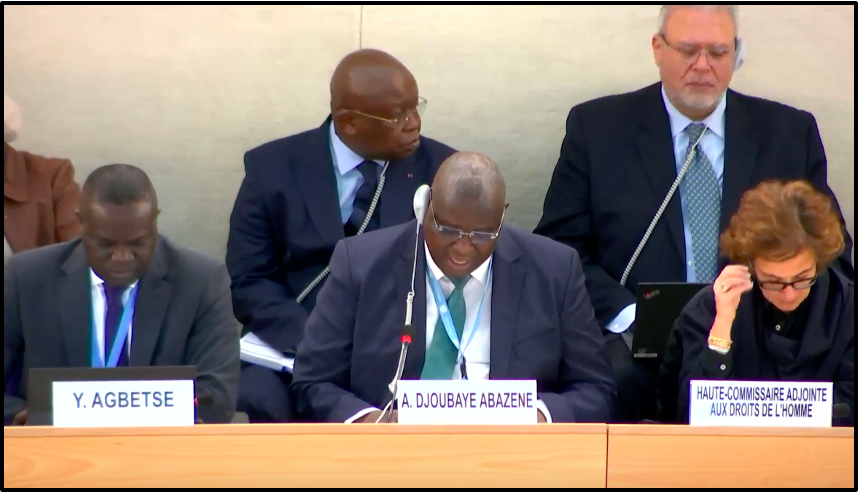
Executive Summary
On 28 March 2024, during the 55th session of the Human Rights Council (HRC) on the 45th meeting (A/HRC/55/45), the delegation of the Central African Republic and the Deputy High Commissioner for Human Rights, Ms Nada Al-Nashif, presented the situation in the Central African Republic concerning human rights law and the policies implemented to promote social protection and development. The growing insecurity and presence of armed groups are fragilising institutions, and there have been reports of many human rights violations. For example, it is usually women and children who are exposed to trafficking and forced marriage, putting the country 188 out of 191 in gender equality.
Mr Arnaud Djoubaye Abazene, the Minister of Justice, Human Rights and Good Governance of the Central African Republic, insisted on the commitment to establishing a more normative and practical framework for human rights, especially when concerning women’s participation in politics and awareness campaigns for health and child protection. Independent Expert on human rights in the Central African Republic, Mr Yao Agbetse, noted that part of the government's main concerns is the lack of resources available and the fight against corruption, which led him to call for stronger UN and European partnerships to assist in overcoming these obstacles. The Univeral Periodic Review (UPR) mechanisms have been essential in strengthening governance in the Central African Republic.
Country delegations underlined the efforts to strengthen the judiciary system, particularly to punish war crime perpetrators. However, concerns remain regarding the humanitarian situation and the question of protection, especially for children. There is a need for constructive dialogue and technical assistance to continue the process towards peace. The government of the Central African Republic has been intensifying efforts in terms of reconstruction and governance, and African countries like Togo have called on financial support to implement these reforms.
NGOs and UNICEF are aligned with enhancing human rights protection, particularly children’s rights. The increase of children’s enrollment in armed conflict as, well as sexual violence against women, has been prominent in the Central African Republic and is an immediate threat to civilians. L’Association des Femmes Juristes de Centrafrique (AFJC) also highlighted the sexual harassment experienced by women in the workplace and universities, as victims stay silent because of the fear of stigmatisation brings forth a necessity to endorse the laws that protect women’s rights.
As emphasised by the delegation representatives and the Deputy High Commissioner, violence in the Central African Republic has to end as it is currently preventing the protection of women and children through a stronger legal framework by the government. Women’s inclusion in politics would be a massive step towards a more democratic and equitable society. The necessity to comply with international law and enable transitional justice in the Central African Republic is primordial to ensure the preservation of its institutions.
Geneva International Centre for Justice (GICJ) supports and encourages the efforts made in the Central African Republic and calls for adequate resources and European Union/United Nations partnerships to carry out projects promoting human rights.
Background
The Central African Republic’s fragile human rights and development situation with precarious humanitarian access has captured the international community’s attention. The partnerships with MINUSCA are intensified in the perspective of ending systematic violence from armed groups and the growing insecurity in the country. The establishment of different plans regarding children (National Action Plan Against Child Trafficking in 2022) and training to prevent the sexual abuse of women and girls constitutes parts of the government’s strategy of rehabilitation and integration. Representative M Abazene restated the revision of discriminatory laws and increased women’s participation in decision-making. However, the social dynamic of the country is threatened by unstable institutions and direct exposure to cycles of violence by armed groups. The lack of an effective political structure is also compromising gender parity. Security, sustainability, and equality challenges need to be addressed with the support of international organisations in the overall development strategy in Africa.
Summary of the Special Representative Report on the Central African Republic
The representatives did not base the discussion and debate on a written report in this High-Level HRC dialogue session.
Interactive Dialogue with Countries Delegations and Representatives of the Central African Republic
Countries concerned
Lithuania
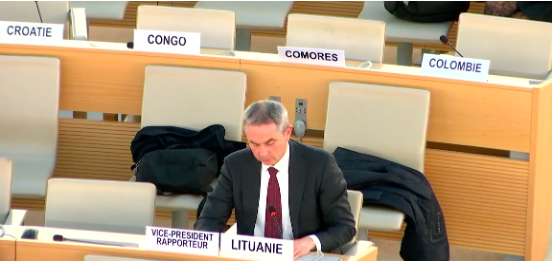
The Vice-President Rapporteur of Lithuania raised deep concerns about the threat to human rights by armed groups and Russian allies in the Central African Republic. The crisis in Sudan has created insecurity in the country while also challenging institutions in the Central African Republic. The road to peace involves good dialogue and respect for humanitarian law by holding actors accountable. He asked what the international community could do to help the Central African Republic to reach justice and accountability.
United States of America
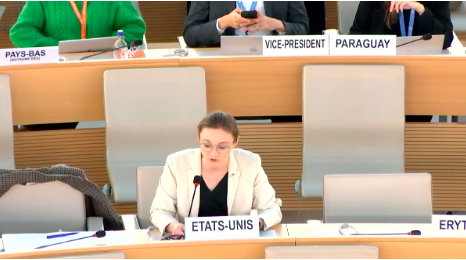
The delegate of the United States highlighted the need for investigations against human abuse by the judicial authorities in collaboration with the government, including criminal court proceedings. The enrollment of children and subjugation to torture and abuses is of great concern as perpetrated with total impunity. OHCHR fostered its collaboration with the Central African Republic government through reports and support on the ground from MINUSCA to target criminals and raise the capacity for trials and justice.
United Kingdom
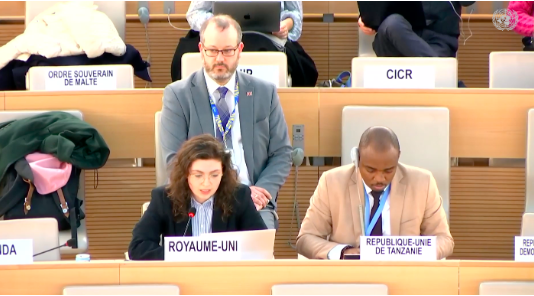
The representative of the United Kingdom insisted on the vulnerability of civilians to armed groups in remote areas. The exploitation of the resources by these same groups prevents progress and reinforces distrust towards the government while creating deep inequalities. The Central African Republic institutions must hold accountable criminals and protect civilians. She called for a political response to tackle these issues to ensure social stability and long-term peace. The elections of 2024 are also a considerable step to reinforce governance in the region. She questioned the panellists on how the international community can double efforts to protect marginalised people such as women and children.
Regional countries
Morocco
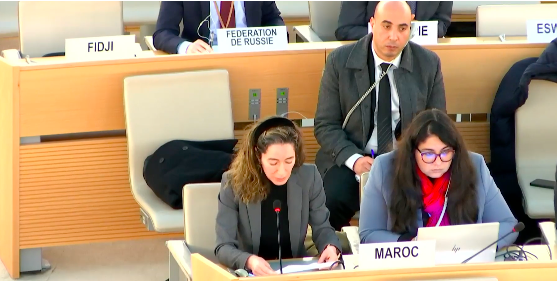
The delegate of Morocco reaffirmed support towards the progress made in the Central African Republic. She claimed Morocco’s commitment by assuring the peace-building process with the blue helmets, which ensures regional security. Morocco also supported the protection of children’s rights with the signature of the code for child protection by the National Assembly. Technical assistance by UN entities reinforced the international pact of preserving peace and supporting significant regional humanitarian efforts. The remaining challenges, especially durable development, call on measures that enable the transition.
Togo
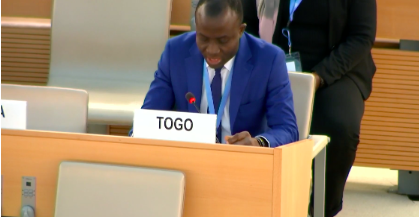
The delegate of Togo emphasised the need for strengthening national policy and the 2023-2027 National Policy for Human Rights efforts to enable numerous other efforts to promote human rights in the Central African Republic with the support of UN bodies. He mentioned the targeted areas of violence, including disarmament, security of armed groups, protection of vulnerable people and transitional justice. The efforts have to be broadened and not limited to the national funding but from the perspective of global cooperation.
Groups of countries
Belgium
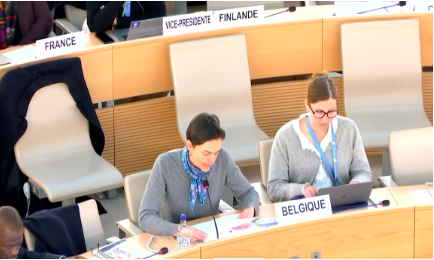
The delegate of Belgium, on behalf of Benelux countries, alerted States about the capture of hostages by armed groups, especially in rural areas. The Central African Republic’s Criminal Court and the legal institutions must conduct new investigations. Bringing justice to the perpetrators of crimes against humanity is necessary to promote human rights and peace. She ended her statement by acknowledging the efforts led after the UPR and incited the implementation of the recommendations in a cooperative and progressive effort.
European Union
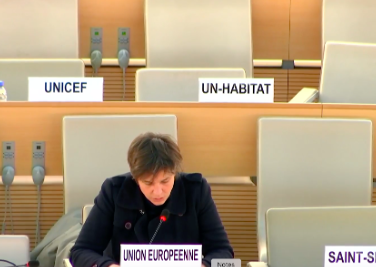
The delegate of the European Union (EU) addressed the impact on civilians and violence on children. The cooperation with MINUSCA raised significant efforts in demobilising armies and the human rights division in documenting the violations. Respect for the political agreement for peace and its effective application is extremely important regarding international support in the region. It is also crucial that the government rebuild trust in institutions and transparency to prevent armed groups from gaining political power.
The Situation of Women’s Rights
Ms Bineta Diop, Special Envoy of the President of the African Union on Women, Peace and Security
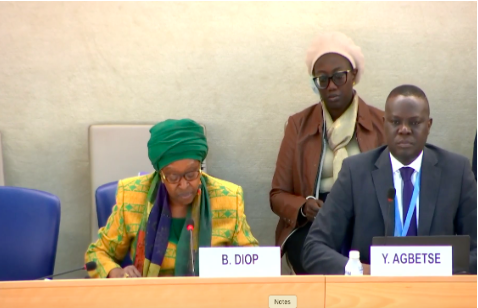
Ms Bineta Diop welcomed the efforts made by the government to reinforce women’s protection through legal documents and institutional mechanisms. Gender equality and the fight against sexual harassment are top priorities. The country intends to reinforce the leadership and involvement of women in politics. However, the fragility of these mechanisms leads to flaws in the system, systematic discrimination and gender violence. She called for the implementation of women’s rights indicators and for strengthening civil society voices by making all actors participate in these changes. Of primary importance is an effective humanitarian response for women concerning access to health, education and social rights. The Maputo protocol is another international mechanism that has to be enforced and encouraged by development strategies.
NGO’s position
Female Lawyers Association of Central African Republic
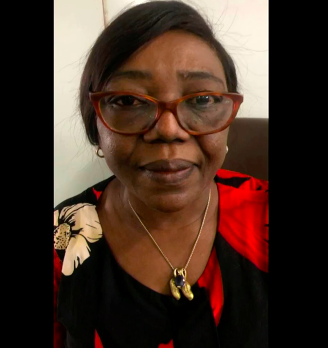
The inequality women face daily, at the workplace and university, is a huge issue that needs to be addressed. The stigmatisation has created a gap in society and threatens human dignity. The fragility of the judicial system does not allow real justice for victims. Women have been encouraged to be resilient and to raise the quotas of women’s employment in mostly male professions like the army. The Criminal Code does not cover all of the country and leads to women being in direct exposure to violence, including the non-criminalisation of marital rape. One of the recommendations is the dissemination of the law on sexual harassment to reinforce awareness among society and enforce judicial institutions’s power in preventing crimes against women and girls.
UNICEF
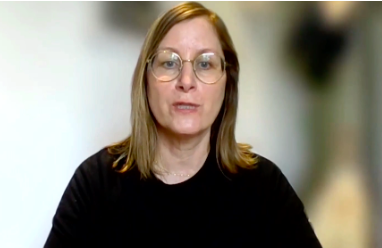
The position of the NGO representative is aligned with the other organisations in that it acknowledges the efforts made to formulate a legal framework regarding the rights of the child. However, the lack of resources and accessibility to children creates obstacles in its implementation. The flaws in the social system prevent children from having full access to health and education, which requires financial support from the international community regarding child dignity and rights for all the children in the world.
Human Rights Research League
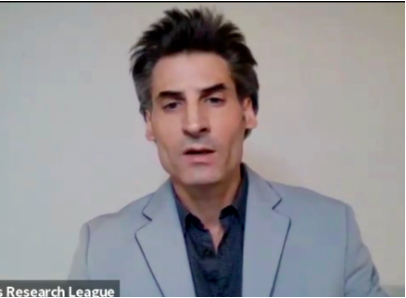
He warned about the alarming humanitarian situation in the Central African Republic, which includes internal displacement, which concerns one out of five Central Africans. Accessibility to resources, such as food, remains critically low, with one of the largest proportions of civilians facing food insecurity. He also emphasised the tension at the borders, especially with Sudan. There is an urgent international need to provide adequate humanitarian resources to overcome the crisis and protect civilians from violence.
Concluding remarks
The delegation of the Central African Republic started with Ms Bineta Diop emphasising the role of the political agreement for peace and reconciliation in the legal framework and enabling women access to political institutions. The engagement towards peaceful development in the Central African Republic has been gradual and subjected to obstacles, including poverty, insecurity, and lack of resources. The next elections will be crucial to determine the political and social future of the country, as well as to assure the preservation and respect of human rights. Regarding access to justice and reparation for victims, the delegation of the Central African Republic calls on the international community to allocate adequate financial and technical resources to reinforce the judicial authority in the Central African Republic, including a global reparation fund. The fragility of the institutionalised system in the Central African Republic prevents the application of transitional justice and appropriate action plans, which would be the first step in resolving the humanitarian crisis in the Central African Republic and the establishment of an equal system of human rights.







